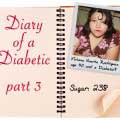Resilience is the human capacity to adapt to circumstances in the face of grief or adversity, whether coping with the loss of a loved one, a layoff, a disease, a divorce, or any emotionally disrupting event. It is resilience that enables us to pick ourselves up and go on with our lives despite the pain. Resilience keeps us from getting stuck, unable to overcome a potentially devastating life event.
However, some of us could use a little help to find resilience in hard times.
George Bonanno, professor of clinical psychology at Columbia University, is credited for his revolutionary work studying resilience. As he tells The New York Times, “The fundamental point is that most people are extremely resilient, and we have shown this in studies of a wide variety of events—losing a spouse, a marriage, even a bodily function.” His study found that 60% of the people who lost a spouse showed no self-reported change in well being over time. The same was true for people who experienced divorce—70% showed no change in their mental health. Even those who suffered the most serious distress eventually bounced back psychologically.
Read Related: What is Happiness & How Can You Attain It?
We have heard stories of people who’ve gone through a an unimaginably rough spot and have even come out of it saying, “That was the best thing that could have happened to me!” While few say that when referring to the death of a spouse or loved one, there are those who can look at a divorce, job loss or other life disrupting changes in a more positive light because of the new opportunities or revelations these events can bring about. This innate optimism does make a difference in each person’s capacity to cope.
OPTIMISM: THE KEY TO BUILDING RESILIENCE
In an article in the Harvard Business Review, Martin E. P. Seligman suggests that resilience can be taught to those who have a harder time coping and exercising it, such as those who suffer from depression or post-traumatic syndrome. After studying the subject in depth, Seligman suggests that exercising a positive attitude is key.
That sounds simple, but of course it’s not that easy for everyone. However, there are ways to build your resilience and try to put a positive spin on things, even in hard times. Here are some positive coping strategies:
- This too shall pass. That might be an annoying platitude when someone says it to you, but it is true. Be hopeful that nothing lasts forever.
- Look back on past experiences. When we look back on something that we thought at the time was the saddest point in our lives, we might find the positive side of things, like a lesson or a new experience that might have made us stronger. We learn that if we were able to overcome that obstacle, we can truly face almost any adversity thrown our way.
- Surround yourself with strong, resilient and positive people. Share your struggles with them, but be sure to listen to theirs as well, learn how they cope and give your advice and support. Isolation magnifies problems and keeps you stuck.
- Talk to a neutral outsider. A psychologist will help because he or she is not emotionally involved and can help you see the big picture. Talking—“getting it all out”—takes some of the load off your mind.
- Research the Web. There are forums and support groups for just about every topic. Relating to other people who are also trying to get over some traumatic experience will pull you through, and you may help others with your input, too. Grieving.com, has an array of forums based on specific life problems.
- Become involved. Seek out opportunities to be of service to others. Volunteer for a cause you care about; help a friend move; do anything that makes you take the focus away from yourself. Sharing your time will make you feel good.
- Follow positive people. Follow them on Facebook and Twitter, read their biographies, be inspired by them. Reinforcing optimism through other people’s life experiences and learning about how they got through rough patches will help you see that you, too, can see light at the end of the tunnel.
Resilience makes each and every one of us a hero. Feed your resilience with positivity, and it will be there when you need it the most.












